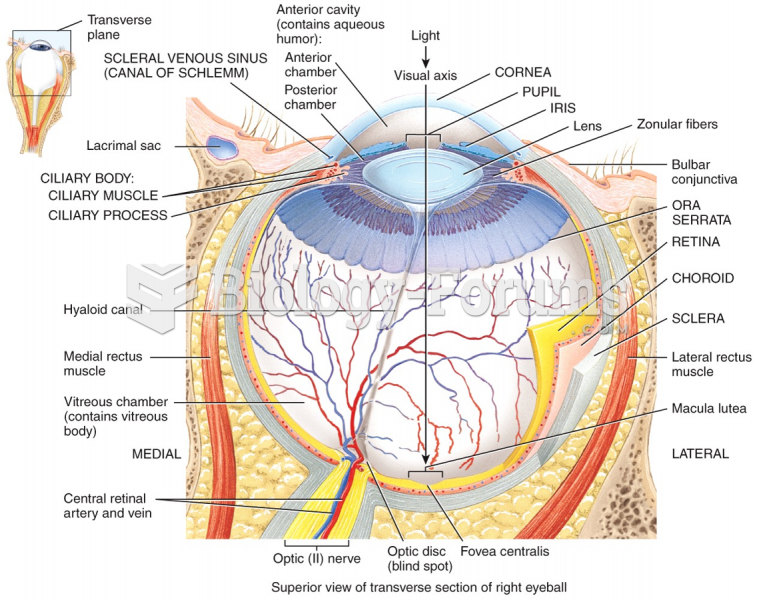|
|
|
Bisphosphonates were first developed in the nineteenth century. They were first investigated for use in disorders of bone metabolism in the 1960s. They are now used clinically for the treatment of osteoporosis, Paget's disease, bone metastasis, multiple myeloma, and other conditions that feature bone fragility.
The Romans did not use numerals to indicate fractions but instead used words to indicate parts of a whole.
Thyroid conditions cause a higher risk of fibromyalgia and chronic fatigue syndrome.
The longest a person has survived after a heart transplant is 24 years.
Opium has influenced much of the world's most popular literature. The following authors were all opium users, of varying degrees: Lewis Carroll, Charles, Dickens, Arthur Conan Doyle, and Oscar Wilde.







